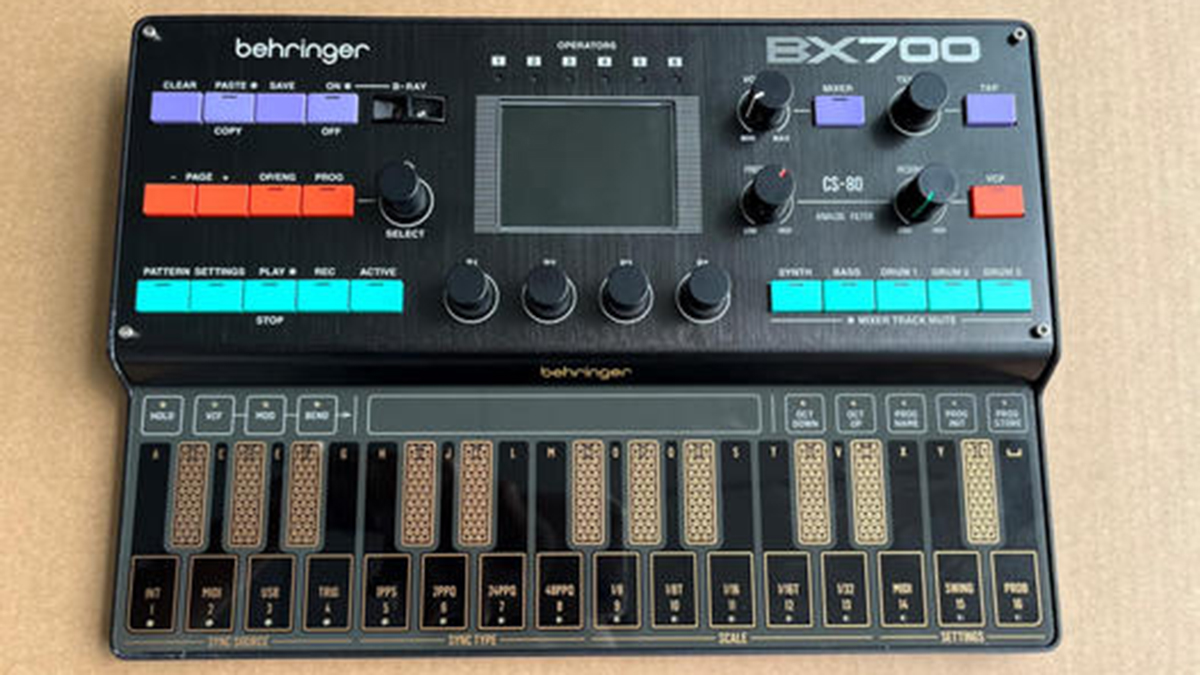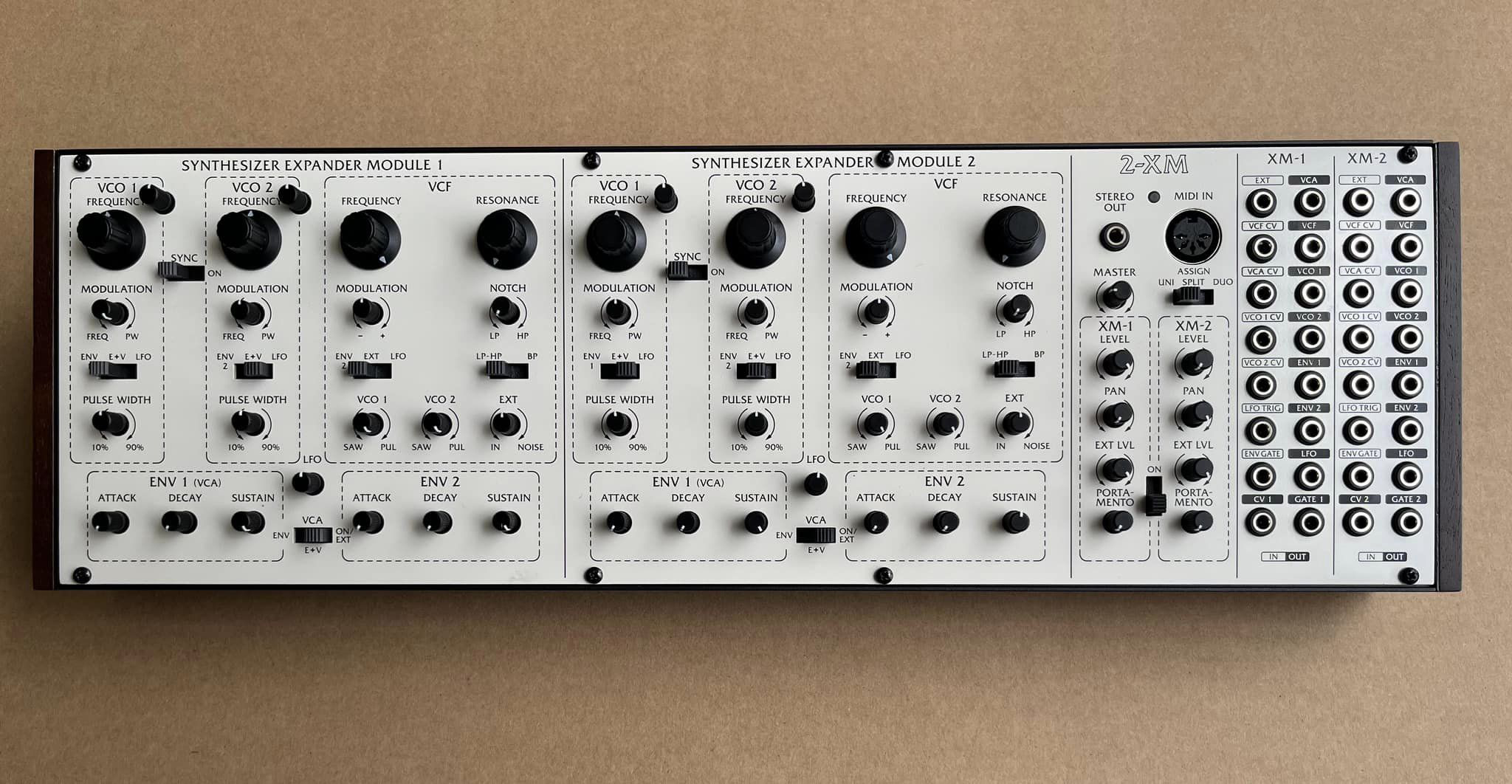Behringer teases 3 new synths, including one that “even Uli Behringer doesn’t know about”
Instruments inspired by the Moog Source, Yamaha DX7 and Oberheim 2-Voice could be heading your way

With a certain amount of whimsy, Behringer has revealed another tranche of new synths. Three of them, to be precise, inspired by past classics from Moog, Yamaha and Oberheim.
First up, the PolySource, a polyphonic take on the monophonic Moog Source, which landed in 1981. Said to be a draft from a “mad” Behringer product designer by the name of Marc, this appears to borrow the Source’s membrane control panel but packs in a full eight analogue voices. Marc reckons he could make this one for the same price as the Behringer Pro-800, so around $599. And if you can't trust Marc, who can you trust?
Then there’s the BX700, (see photo at the top of the page) a prototype synth that’s described as a “DX7 on steroids” thanks to the inclusion of a CS-80-style filter and a built-in drum machine. This is the brainchild of a “product magician” known as Miguel, apparently, who designed it in his spare time, and is so secret that “even Uli [Behringer] doesn’t know about it.”
Despite Behringer promising to “never make this synth as the world surely doesn’t need another DX7,” we wouldn’t be surprised to see it pop up at some point.
Finally, Behringer’s social media guru says that they just happened to find a synth known as the 2-XM lying around - seemingly a Eurorack-friendly take on the Oberheim 2-Voice that’s now ready for production (price to be confirmed).

Get the MusicRadar Newsletter
Want all the hottest music and gear news, reviews, deals, features and more, direct to your inbox? Sign up here.



I’m the Deputy Editor of MusicRadar, having worked on the site since its launch in 2007. I previously spent eight years working on our sister magazine, Computer Music. I’ve been playing the piano, gigging in bands and failing to finish tracks at home for more than 30 years, 24 of which I’ve also spent writing about music and the ever-changing technology used to make it.
“Excels at unique modulated timbres, atonal drones and microtonal sequences that reinvent themselves each time you dare to touch the synth”: Soma Laboratories Lyra-4 review
e-instruments’ Slower is the laidback software instrument that could put your music on the fast track to success









